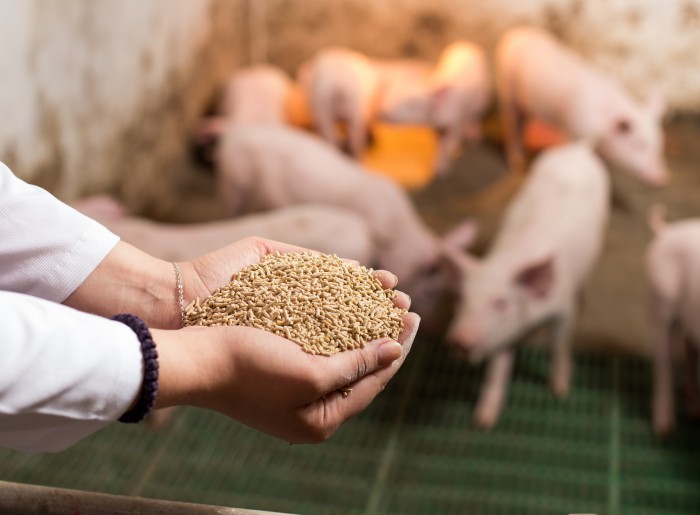Stefan Rusu of Garth Pig Practice, discusses the benefit of probiotics in the pig farming industry.
It seems that almost every day we hear about a new strategy, wonder drug or alternatives to help reduce antibiotic usage in pig farming and improve gut health, but what if we return to an older, simpler solution that involves nothing more than the stuff that turns milk into yoghurt?
The benefits of probiotics when it comes to gut health were well known in the past and with the importance of gut health to the wellbeing of our own species being rediscovered by western civilisation – around 90% of serotonin (the happiness hormone) being produced in the gut – I think applying the same strategy to our beloved pigs is just the next logical step.
Supplementing probiotics in pig feed is gaining interest in recent years with Lactobacillus being the most commonly used probiotic agent to improve growth performance, feed conversion efficiency, intestinal microbiota and to regulate immune system in pigs.
Stress factors including nutritional, environmental and weaning affect the animal productivity and health. Newly weaned pigs have limited digestive capacity (even without external stressors), which can trigger fermentation of undigested protein by opportunistic bacteria (mainly Escherichia coli, Salmonella) normally existing in the intestines of healthy pigs, which leads to production of toxins that damage the intestinal mucosa resulting in diarrhoea.
The term ‘probiotics’ comes from Greek, ‘biotikos’ meaning ‘for live’. Among various probiotic bacteria, Lactobacillus is the most commonly used probiotic agent.

Lactobacilli are bacteria which produce lactic acids as their major metabolite and stimulate rapid growth of beneficial microbiota in the gut which become abundant and induce competitive exclusion of pathogenic bacteria. The use of organic acids in the pig industry is widespread today with well-known benefits.
Probiotic bacteria produce organic acids, hydrogen peroxide and other compounds with known adverse effect to E coli, Salmonella. Lactobacillus is capable of acting almost as a general ‘vaccine’ for the gut’s immune system, stimulating it without doing any damage.
Live bacteria that not only produce organic acids but also actively compete with potentially dangerous bacteria in the gut and help strengthen the immune system will surely gain popularity in pig nutrition as a way to mitigate challenges to gut health and help reduce antibiotic usage.




